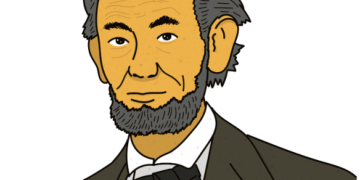By Michele Reger
Welcome to February! It’s American Heart Month, established to raise awareness about heart health. Let’s have a heart-to-heart about the physical, mental, emotional, and spiritual soundness of our hearts!
Medical practitioners prioritize physical self-care for heart fitness. Maintaining a healthy cardiovascular system requires exercise, a balanced diet rich in fiber, protein, and healthy fats, and restful sleep. Countless resources emphasize fitness and nutrition as well as rest and stress management for sound cardiovascular health, and we must engage in these practices to support the physical health of our hearts. But, cross my heart, other aspects of our heart health are just as crucial!

The mind has a profound impact on the body. Distractions, deadlines, and demands in our awareness and beliefs, biases, and judgment in our subconscious compete for our attention, affecting mental health and creating an overstimulated mind, more likely to focus on negative thoughts than positive ones. Psychologists call this our “negativity bias,” and it prevents us from making heart-centered decisions that would nourish and enrich our lives. This mental clutter pulls our focus away from the desires of our hearts, keeping us in fear and disappointment, and causes stress that takes a physical toll on our hearts by increasing cortisol levels, impairing circulation, and even contributing to heart disease. But, take heart! While we can’t stop thoughts, our heart plays an important role in the process of creating positive ones. When we follow our hearts out of our busy minds, we align choices with our desires, values, and beliefs. Engaging in prayer, journaling, meditation, or conversation helps us know in our heart of hearts what feels right. Heart-centered decision-making fills us with confidence and self-trust rather than fear. This shift might not happen in a heartbeat, but focusing on positive intentions fosters a mental environment that supports heart health.
The heart is regarded as the wellspring of emotions. While the human heart is an organ that performs vital physiological processes, its depiction in art and literature emphasizes its connection to emotions. When we speak from our hearts, we go beyond physical sensations by sharing reactions and feelings we experience about life events, illustrating the heart’s role as the center of our emotional world. It breaks our hearts when we suppress emotional tension, turmoil, and unresolved feelings. This strain affects both our emotional and physical health and can manifest in high blood pressure, chest pain, and even heart disease. Having a heart for ourselves by practicing self-care is vital for our well-being. Self-compassion, loving and caring for ourselves–even when we lose heart–is a powerful tool, alongside journaling, therapy, and pouring our hearts out to trusted friends. Expressing gratitude and forgiveness opens our hearts to contentment and freedom. These practices promote a sense of peace that nurtures the emotional welfare of our hearts.
The human heart is linked to spiritual health in faith traditions as the bridge between the body and infinite wisdom–God, Divine Source, Creator, Higher Power. . .Nurturing our hearts spiritually means aligning with our true purpose and values. Living in tune with our soul’s purpose tends our hearts when we see meaning in our daily actions and engage in spiritual connection. Practices to support spiritual heart health may come from our faith traditions as well as our interests—time in nature, movement, relationships, creative gifts and talents. When we acknowledge why we’re here and that we’re supported in fulfilling our purpose, our lives have meaning, which does our hearts good! We’re better able to connect with our greatest source of joy and live life heart and soul!
As we celebrate American Heart Month, remember–getting to the heart of the matter is more than just physical. Our hearts need mental, emotional, and spiritual support, too, so we can celebrate lives full of vitality, meaning, and joy!





























